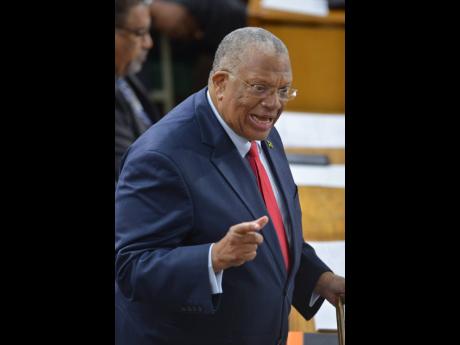Jaevion Nelson | Put workers’ rights on the development agenda
Political leaders like to beat their chests and boast about how much they care about the poor but do so little work beyond piecemeal interventions (and handouts) to make their lives better.
They have prioritised creating opportunities for gainful employment while ignoring the urgent need to address workers’ rights simultaneously.
Many persons, especially ‘unskilled’ and low-income workers, have been complaining every single day over the years about the situation. They’ve also made countless reports to trade unions and related bodies, but all the complaints seem to have fallen on deaf ears until recently.
Thankfully, amidst all the banter about who’s “missing the mark” and causing “damagement” to the economy, Peter Phillips, the opposition leader, raised a pertinent issue on Thursday, March 14, 2019, during his Budget presentation that ought to enjoy national attention.
According to Phillips, “One of the areas where the inequity is most stark is the situation with the workers of the country. The widespread practice of substituting full-time employment that comes with real benefits with so-called ‘contract labour’, which comes with none, deepens the inequity in our society. We all know of the situation which exists in relation to the Government service, like hospital ancillary workers, porters, etc., and in the security sector, with the security guards. This has become more widespread in the tourism sector and has even extended into the manufacturing sector.”
Late last year, I was having a chat about inequality and economic justice with colleagues who work at one of the trade unions in the country. They mentioned the practice of continuously hiring people on contracts, which facilitated the situation Phillips described, where their rights and the responsibilities of their employer are concerned.
I am rather delighted that Phillips has brought this to our attention and sincerely hope we will spend some time discussing this, because very little work is being done around workers’ rights and economic justice, including by those who work directly with some of the poorest and most marginalised. We cannot keep prioritising creation of job opportunities over rights as if they are mutually exclusive. That this is the state of affairs in the country suggests work must be done to disrupt the status quo.
BENEFIT THE LEAST
As Phillips said, the abuse of workers’ rights is being facilitated through the use of contract work, which “denies the workers of the rights and benefits that have been won for them by the Trade Union Movement, dating back to the days of [Alexander] Bustamante, Ken Hill, Michael Manley and Hugh Shearer, and others”.
The poor, including those in low-paying employment, continue to bear the weight of inequality and poverty, which have been constant features of the trajectory of Jamaica’s development for decades.
Their lives are evidence of years of neglect by the economic and political elite, which has done very little to facilitate their full and equal development. Their ambitions are almost always never realised because they benefit the least from improvements in the economy, given their limited access to income, their geographic location or political affiliation, the abuse of their rights, and other factors.
We cannot continue to ignore this grave issue. People cannot advance in a society if inequality is so pervasive and all the ways in which it manifests itself are not addressed. Development initiatives must, therefore, prioritise the needs, concerns and realities of the poorest and most vulnerable for everyone to benefit fully.
It must ensure that, inter alia, the rights of workers are central to the thrust to provide people with jobs and that economic and other forms of justice are a priority for there to truly be development.
Parliamentarians, particularly those whose constituents are highly dependent on tourism and those who preside over some of the poorest communities, must therefore take a stand to protect low-income earners in our country.
The three-member committee announced by the prime minister must concern itself with this matter as well.
Jaevion Nelson is a human-rights and social and economic justice advocate. Email feedback to columns@gleanerjm.com and jaevion@gmail.com, or tweet @jaevionn.

